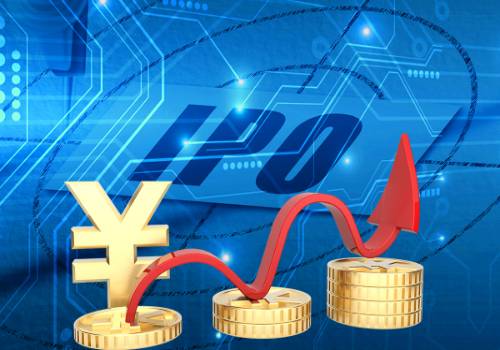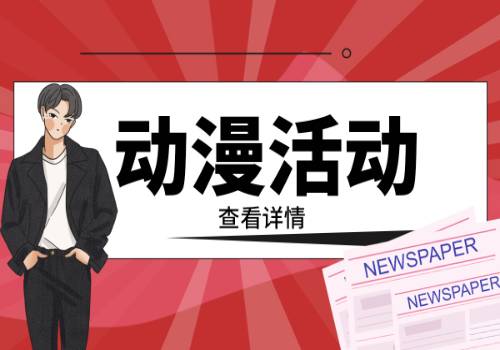World Insights: Are recent remarks on China by U.S. politicians a "goodwill gesture"?
This photo taken on Aug. 4, 2022 shows the White House and a stop sign in Washington, D.C., the United States. (Xinhua/Liu Jie)
The comments are just part of Washington"s long-held Janus-faced China policy: applying a mixed approach of containment, competition and cooperation to best serve America"s self-interests and its hubris to dominate the world.
BEIJING, May 2 (Xinhua) -- U.S. President Joe Biden said on Wednesday that the Chips and Science Act was "not designed to hurt China." But are his remarks, along with other similar ones made by several U.S. officials, credible?
 (资料图片)
(资料图片)
Earlier, U.S. Trade Representative Katherine Tai said that all members of Biden"s administration have been "very clear" that decoupling from the Chinese economy is "not a goal or achievable." U.S. Treasury Secretary Janet Yellen also denied that the United States was seeking to decouple the U.S. economy from China"s economy.
Those remarks might seem friendly, but they can hardly be interpreted as a "goodwill gesture" by the United States toward China. In fact, the comments are just part of Washington"s long-held Janus-faced China policy: applying a mixed approach of containment, competition and cooperation to best serve America"s self-interests and its hubris to dominate the world.
DOUBLE-DEALING AS USUAL
In fact, this is not the first time those senior U.S. officials made those deceitful remarks. During a visit to France back in 2021, U.S. Secretary of State Antony Blinken said "our purpose is not to contain China" or "try to hold China back."
So what to make of the gap between those words and the actual policies pursued by Washington?
On multiple pressing issues, the United States indeed needs China"s cooperation, like solving the 2008 global financial crisis and fighting climate change. No countries can fix those problems alone.
Meanwhile, successive U.S. administrations in recent decades have viewed China as a strategic competitor and a challenge to America"s global supremacy.
So Washington has chosen to demand communication and cooperation from China on the one hand while attempting to contain China"s development on the other through various means under the pretext of safeguarding national security and the so-called rules-based international order.
For example, Washington repeatedly claims that it will not seek a new "Cold War" with Beijing, yet it has been hyping up the so-called "democracy vs autocracy" narrative; it claims that it wants to advance a vision for an open, inclusive international system, yet it is bent on building up a series of exclusive blocs like the Quad and AUKUS alliance to encircle China.
Pedestrians walk past a store in New York, the United States, May 11, 2022. (Xinhua/Wang Ying)
While it also claims that the Chips and Science Act was not designed to hurt China, an awardee under the law "may not engage in any significant transaction ... involving the material expansion of semiconductor manufacturing capacity" in China or any other foreign country of concern over the following 10-year period. In the meantime, Washington is forcing some of its key allies to squeeze chip supplies to China. Such examples of U.S. hypocrisy are not in short supply. Most recently, the United States continues to peddle lies on a Chinese civilian balloon and COVID origins tracing. It also insisted on arranging a so-called U.S. stopover for the leader of China"s Taiwan region. Those actions have only reinforced an impression that Washington has no real intention to alter its wrong-headed China policy and improve bilateral ties.
"Both the U.S. and China have important roles to play in global diplomacy and strategic dialogue. Increased communication and cooperation on issues such as climate change, global health, and nuclear non-proliferation could benefit both countries and the world," said Cavince Adhere, a Kenya-based international relations scholar.
The U.S. actions such as engaging in trade, technology and economic suppression of China have done little to stabilize relations, despite some attempts by Washington to appear more amicable, he cautioned.
DAMAGING RESULTS
The China-U.S. relationship is widely acknowledged as the world"s most important bilateral relations. Such a dubious handling of the relationship by Washington will not only backfire and eventually hurt America"s own interests, but also prevent the international community from solving its common problems.
The U.S. federal government"s debt hit its ceiling of 31.4 trillion U.S. dollars in January. The Federal Reserve has continuously raised interest rates to curb inflation. Several U.S. banks have collapsed, raising the fear of a banking crisis, and the financial turmoil has intensified the risk of a recession.
This photo taken on Jan. 20, 2023 shows the U.S. Department of the Treasury in Washington, D.C., the United States.(Xinhua/Liu Jie)
Experts have said that under such circumstances and in an integrated world, properly managing the China-U.S. relationship will help the United States stabilize its economic and financial situation.
Nourhan el-Sheikh, a professor of international relations at Cairo University, said China, as the world"s second-biggest economy and an important driver of global trade, is also a major holder of U.S. Treasuries.
In order to build healthy relations between the two countries, Washington must give up its Janus-faced China policy and cooperate with China in a sincere manner, and U.S. politicians must not say one thing while doing another.
Meanwhile, Washington"s China policy that combines containment and cooperation has global consequences. America"s talking about cooperation while seeking confrontation at the same time has greatly disrupted the world order and confused other countries, further damaging the United States" reputation.
The U.S. policy of suppressing China has rocked the global industrial chains and harmed the interests of many countries, said Zhang Yifei, an associate researcher with the Institute of American Studies at the Chinese Academy of Social Sciences.
Stephen Walt, a Harvard University professor of international relations, said in an article he wrote for Foreign Policy that most countries "do not want to see great-power competition get out of hand, because they believe a Sino-American clash would have negative consequences for them."
"In the decades to come, therefore, many states will prefer to rally behind whichever major power seems more likely to promote peace, stability, and order. By the same logic, they will tend to distance themselves from whichever major powers they believe are disturbing the peace," he said.■
关键词:
-
 World Insights: Are recent remarks on China by U.S. politicians a "goodwill gesture"? ThisphototakenonAug 4,2022showstheWhiteHouseandastopsigninWashin
World Insights: Are recent remarks on China by U.S. politicians a "goodwill gesture"? ThisphototakenonAug 4,2022showstheWhiteHouseandastopsigninWashin -
 【焦点热闻】European banks pull back after collapse of First Republic in U.S. ThisphototakenonApril24,2023showsanexteriorviewofabranchofFirstR
【焦点热闻】European banks pull back after collapse of First Republic in U.S. ThisphototakenonApril24,2023showsanexteriorviewofabranchofFirstR -
 环球简讯:Feature: Return of Chinese tourists contributes to Egypt's tourism rebound MohamedA Salama,headoftheInternationalTourismOfficesSectorattheEgypt
环球简讯:Feature: Return of Chinese tourists contributes to Egypt's tourism rebound MohamedA Salama,headoftheInternationalTourismOfficesSectorattheEgypt -
 “五一”期间各地企业抢抓时机开新局_当前关注 “五一”假期怎么过?坚守在生产一线,抢抓时机,开新局。“五一”小长假,在大多数人享受假期的休闲时光时
“五一”期间各地企业抢抓时机开新局_当前关注 “五一”假期怎么过?坚守在生产一线,抢抓时机,开新局。“五一”小长假,在大多数人享受假期的休闲时光时 -
 世界热讯:致敬坚守 拼搏奋斗 在闹市街头维护秩序的公安民警、在机场车站贴心服务的乘务人员、在社区往来奔忙的快递小哥……“五一”假期
世界热讯:致敬坚守 拼搏奋斗 在闹市街头维护秩序的公安民警、在机场车站贴心服务的乘务人员、在社区往来奔忙的快递小哥……“五一”假期 -
 环球速讯:“五一”期间多地基础设施工程建设持续推进 新华社北京5月2日电题:“五一”期间多地基础设施工程建设持续推进新华社记者樊曦坚守是建设者的常态,奋斗
环球速讯:“五一”期间多地基础设施工程建设持续推进 新华社北京5月2日电题:“五一”期间多地基础设施工程建设持续推进新华社记者樊曦坚守是建设者的常态,奋斗 -
 各地迎来假期返程高峰 5月2日是“五一”假期第四天,记者从公安部交管局获悉,各地开始迎来假期返程高峰,全国主干公路交通流量呈
各地迎来假期返程高峰 5月2日是“五一”假期第四天,记者从公安部交管局获悉,各地开始迎来假期返程高峰,全国主干公路交通流量呈 -
 全球即时:张之臻,再创中国男子网球历史! 北京时间5月3日凌晨,ATP1000马德里大师赛男单第四轮比赛继续进行。中国选手张之臻在决胜盘抢七挽救三个赛
全球即时:张之臻,再创中国男子网球历史! 北京时间5月3日凌晨,ATP1000马德里大师赛男单第四轮比赛继续进行。中国选手张之臻在决胜盘抢七挽救三个赛 -
 全球热推荐:夯实生态产品价值实现的“数字底座” 促进生态产品价值实现,是践行“绿水青山就是金山银山理念”的实践抓手。发挥数字经济作用、助力生态产品价
全球热推荐:夯实生态产品价值实现的“数字底座” 促进生态产品价值实现,是践行“绿水青山就是金山银山理念”的实践抓手。发挥数字经济作用、助力生态产品价 -
 简讯:时代文艺的有生力量 当互联网与青年的文艺评论结合,形成了新媒体评论阵地;当互联网与青年的文学写作相遇,产生了丰富多彩的文
简讯:时代文艺的有生力量 当互联网与青年的文艺评论结合,形成了新媒体评论阵地;当互联网与青年的文学写作相遇,产生了丰富多彩的文
热点
-
 今日快讯:多彩假期活动丰富 节日消费持续升温 央视网消息(新闻联播):“五一”...
今日快讯:多彩假期活动丰富 节日消费持续升温 央视网消息(新闻联播):“五一”... -
 天天亮点!致敬坚守 拼搏奋斗(今日谈) 在闹市街头维护秩序的公安民警、在...
天天亮点!致敬坚守 拼搏奋斗(今日谈) 在闹市街头维护秩序的公安民警、在... -
 全球快资讯丨返程高峰,官方重要提醒→ 五一假期最后一天多地迎来返程高峰...
全球快资讯丨返程高峰,官方重要提醒→ 五一假期最后一天多地迎来返程高峰... -
 今日15时—20时将现返程高峰 气象部门研判明后两日粤北地区将有雷雨天气 5月3日是“五一”小长假最后一天,...
今日15时—20时将现返程高峰 气象部门研判明后两日粤北地区将有雷雨天气 5月3日是“五一”小长假最后一天,...
文章排行
娱乐图赏
-
 常润芳:与玄奘为邻 | 洛阳作家写洛阳 消息 是啊,像我这样的人,走马观花,只...
常润芳:与玄奘为邻 | 洛阳作家写洛阳 消息 是啊,像我这样的人,走马观花,只... -
 5天赚近5万!你被份子钱掏空了,他们赚翻了 要结婚的新人终于等来了小长假,婚...
5天赚近5万!你被份子钱掏空了,他们赚翻了 要结婚的新人终于等来了小长假,婚... -
 每日视讯:5月3日长三角铁路迎来返程客流高峰:预计发送旅客360万人次 计划增开旅... 上证报中国证券网讯(记者宋薇萍)...
每日视讯:5月3日长三角铁路迎来返程客流高峰:预计发送旅客360万人次 计划增开旅... 上证报中国证券网讯(记者宋薇萍)... -
 第九届河津街舞“茂栋杯”巅峰赛全国2300名选手参加 全球动态 比赛现场为期两天的河津市“鱼跃龙...
第九届河津街舞“茂栋杯”巅峰赛全国2300名选手参加 全球动态 比赛现场为期两天的河津市“鱼跃龙...